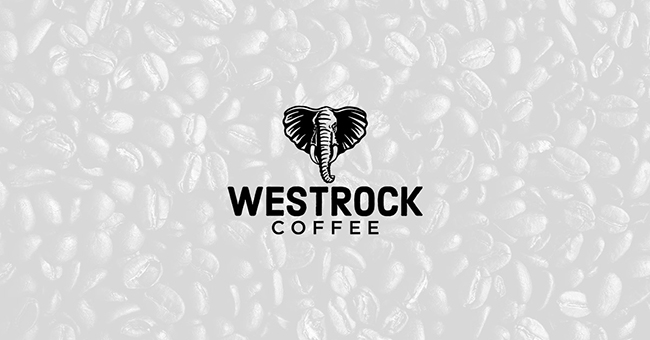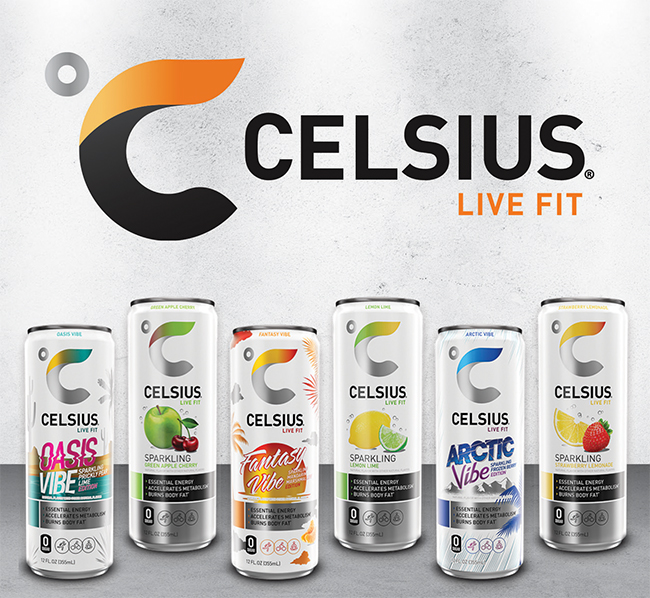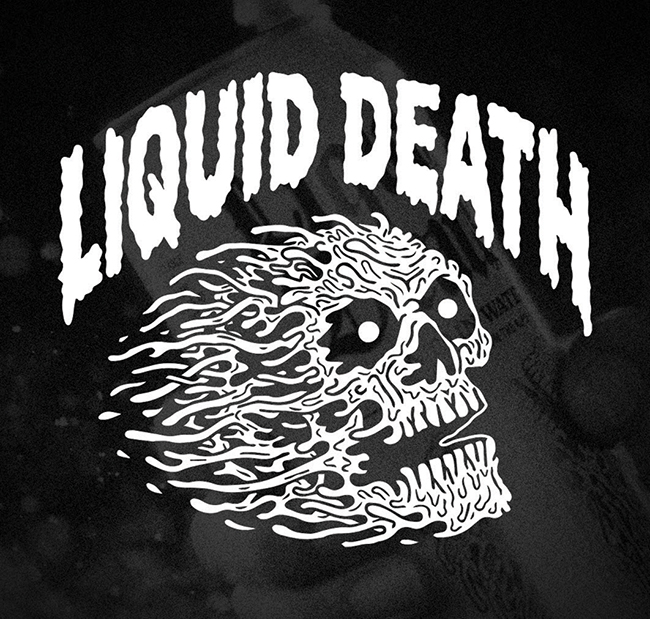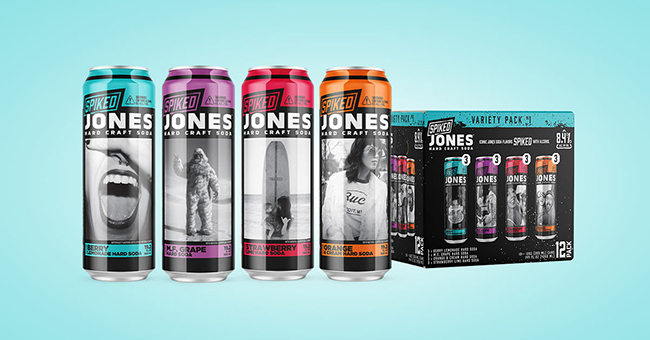Bevscape: The Latest Beverage Brand News
BlueTriton Grows Water Offerings with Hawaii Volcanic Distro Deal
Premium water maker Hawaii Volcanic has inked a distribution deal with top U.S. bottled water manufacturer BlueTriton to service the Hawaii-based brand in retail, home and office accounts through its ReadyRefresh Direct Delivery platform. The deal was brokered via L.A. Libations, which holds an equity stake in the brand.
According to Hawaii Volcanic CEO Jason Donovan, the brand provides BlueTriton with its first offering in Hawaii, while adding an additional premium water brand to its portfolio in the Western U.S. market, complementing its Arrowhead brand. Donovan noted that Hawaii Volcanic’s focus on sustainability was also key to securing the partnership, as the brand sources from a renewable water source and is packaged in recyclable glass.
“They love that we’re very aligned on mission first and we will be filling in some whitespace for them,” Donovan said. “I think we’re adding to their portfolio being in the super premium category and being in glass.”
“BlueTriton’s ReadyRefresh Direct Delivery business is excited about our new DSD partnership in California with Hawaii Volcanic Water,” said Joe Wiggetman, Chief Customer Officer of BlueTriton Brands, in a statement. “We look forward to satisfying our consumers with another outstanding healthy hydration option.”
In addition to DSD services, BlueTriton’s ReadyRefresh network has access to over 200,000 home and office accounts in California alone, L.A. Libations CEO Danny Stepper told BevNET. The partnership is underway in California with the possibility of expanding to Arizona, Texas and Florida in the near future.
BlueTriton was founded in 2021 following the acquisition of ReadyRefresh and the Nestle Waters North America brand portfolio by an investment group.
“What I’ve learned from doing deals with strategics is that when it’s natural, and if it just feels like it fits on both sides, that’s when things usually go good,” Stepper said. “It’s when you’re trying to do something unnatural and forcing it that they tend not to go well. So, I’m very bullish that this is going to be really great for both organizations.”
Founded in 2012, Hawaii Volcanic had primarily been distributed in the Aloha state until last year, when it closed a $10 million funding round that included investments from L.A. Libations and surfing icon Bethany Hamilton, among others. The brand has since been focused on building distribution along the West Coast, hitting its goal of 8,000 doors by the end of 2023 and adding retailers such as Walmart, Erewhon, Albertsons, Safeway, Vons, Pavilions and around 120 CVS stores in California.
While L.A. Libations has been able to build Hawaii Volcanic’s presence in a number of mainstream retail chains, Stepper said the key unlock BlueTriton will bring to the brand is actually in its ability to add more small chains and independent accounts to its footprint.
Stepper also noted that the deal offers future opportunities for L.A. Libations to work with BlueTriton for distribution agreements on additional brands, noting that ReadyRefresh also services non-water products like ROAR Organic.
“This is super exciting for Hawaii Volcanic, but it also opens the door for L.A. Libations to do more with them,”
he said.
Westrock, Select Milk Partner To Produce Milk-Based Coffee RTDs
Westrock Coffee is expanding its already ambitious strategic vision for ready-to-drink, announcing in February an agreement with Texas-based Select Milk Producers to create a joint venture for dairy or plant-based milk and coffee beverages.
The collaboration was affirmed in a letter of intent between the two companies, which detailed plans for the construction and operation of extended shelf-life and aseptic multi-serve bottle lines inside a new manufacturing facility Select Milk intends to build in Littlefield, Texas, set to go online in Q1 2026.
Dallas-based Select Milk is a major milk processor in the Southwest and Midwest, and is the owner or joint venture partner in eight plants. The company was an original partner with The Coca-Cola Company in fluid dairy brand Fairlife before being bought out in 2020.
The new plant will produce drinks made with coffee extracts and concentrates supplied from Westrock’s 524,000 square foot, $300 million facility in Conway, Arkansas, the centerpiece of the family-run company’s plan to dominate the liquid format. The Conway site is set to go online this spring, but is already getting an upgrade.
“As we near completion of the Extract and RTD facility in Conway, Arkansas, we made the decision to expand our extract and concentration capabilities so that as we add additional lines in the future, we can do so without having to impact the existing operations of the facility,” said Westrock Coffee’s CEO and Co-Founder, Scott Ford, in a statement.
“In addition, we have expanded our multi-serve bottle capacities by adding cold-chain capability to our facility. Together, these additions better position us to respond to existing customer demand for extended shelf life (“ESL”) and multi-serve bottles and ensure we can grow our capabilities in the future without disrupting operations.”
As detailed in the most recent edition of BevNET Magazine, Westrock has made deep investments in its RTD strategy that have dampened recent quarterly earnings, with management promising short-term pain will translate to long-term gains before the facility has even officially opened.
Westrock is funding both the Select Milk joint venture and the Conway expansion by issuing $72 million in convertible senior unsecured notes (bearing 5% annual interest) due 2029 in a private offering. The notes are convertible into shares of common stock in certain circumstances and during certain periods at a conversion price of $12.84 per share, subject to adjustment.
Celsius: Energy Co. Passes $1B In Full-Year Revenue For First Time
Celsius is showing no signs of stopping its upward trajectory as it reported nearly triple-digit gains in its Q4 2023 earnings in February.
The Boca Raton, Florida-based energy drink company posted revenue of $347.4 million, a 95% increase compared to Q4 2022. For the first time, Celsius topped the billion dollar mark with FY2023 revenue of $1.32 billion, up 102% versus the previous year.
The “stellar” performance to close out the year, CEO John Fieldly said, was backed by its strategic distribution partnership with PepsiCo, a focus on refrigerated placements and a “methodical approach” to international expansion.
“The energy drink category is now a three-team race,” Fieldly said in prepared remarks referring to Red Bull and Monster as the top two category leaders.
Celsius held about 9.3% of dollar share revenue with unit sales up 119%, according to Circana data for the last 52-week period ending December 31.
Company leadership was bullish on the opportunity in its Celsius Essentials line which launched late last year. The new amino acid laden, performance energy drink reported a record 49% ACV (All Commodities Volume) year-to-date on February 18.
Gross margin was about 48% in both the Q4 and full-year results and its non-GAAP adjusted EBITDA was up 316% to about $296 million for FY2023, compared to $71 million in the prior year.
Net income attributable to common stockholders was $39 million for Q4, compared to a -$28 million loss in the same quarter the previous year.
The energy brand touted its growing footprint in foodservice where 12.5% of its Pepsi distribution sales come from the channel. The company also has also been prioritizing its branded cooler program where it currently has over 10,000 refrigerated cases across the U.S. representing over 300% gain year-over-year.
With an eye towards increasing its placements and velocities in the convenience channel, cold placement has been a “big initiative” in order to drive impulse purchases, Fieldly said in the question-and-answer section. “We do see uplift if you’re by the register and you’re cold. If it’s cold it’s sold.”
In ecommerce, Celsius announced it was the highest selling energy drink with 19.7% share of the category, edging out Monster Energy which clocked in at 19.6%.
It has also made gains in its Club channel sales. Club sales were $77.1 million in Q4, up 64% year-over-year.
One of the pillars of its continued growth revolves around its international distribution where last year it moved into two key markets. Utilizing its partnership with PepsiCo, the brand began distributing in Canada in mid-January and is “pleased” with sales in the country in the limited timeframe.
Celsius also announced Suntory Beverage & Food as its sales and distribution partner in the United Kingdom and Ireland.
In looking for the best partners to align with internationally, Fieldly noted that Suntory’s access to the gym community was “very attractive” but Celsius needs to “build a loyal foundation” before it scales too quickly.
CFO Jarrod Langhans did caution that there will be some “costs and investments” in building awareness and production in both of these international markets.
Celsius already had a co-packer in Canada that it used as a backup for its U.S. business but in the UK, the company is “launching from zero,” Langhans said. “We won’t have the same scale and leverage advantages within manufacturing as we do in the US. But it’s not going to be a significant component of either our growth or our cost infrastructure this year.”
Despite launching the Essentials line and new flavors throughout the portfolio in 2023, Celsius continues to “monitor its SKUs” looking for areas where it can “cut its tail” on slower moving varieties, Fieldly said.
Celsius stock was up about 17%, trading at $79.40 per share at the time of publication.
Liquid Death Closes $67M Funding Round
As it looks to scale up to meet fast-rising demand for new innovations, Liquid Death has closed a $67 million funding round at a valuation of $1.4 billion.
The financing adds to the more than $200.6 million the better-for-you beverage maker has raised since 2019, while the new valuation is double the $700 million valuation it touted following its Series D round closed in 2022.
This latest round features investments from several distributors, including the “No. 1 distributors in North Carolina, Oregon, Utah, and Washington,” among others.
According to Liquid Death founder and CEO Mike Cessario, having the distributors invested in the brand was an important step towards strengthening the brands relationship with its top DSD partners. While he declined to name any specific companies involved in the financing, he said that eight of the brand’s top 10 distributors are among the investors.
Cessario noted that having a “shared alignment” with its distributors was important for the business, particularly in an industry where DSD houses frequently invest heavily into building beverages from the ground up only to be left with a large vacancy when a brand exits to a strategic.
“We’re really making them feel like they truly are an extension of our company,” he said. “We want to bring them in and have them more involved in every way because it’s so critical to have a shared alignment with them.”
As well, he suggested that having distributors at the cap table also sends a confident message to other investors about the strength of Liquid Death, as distributors “really know what’s working” on shelf.
Beyond DSD partners, a new institutional investor – SuRo Capital – has joined the brand’s cap table alongside follow-on investments from existing partners Live Nation, Science, Inc., and Gray’s Creek Capital Partners. SuRo is a publicly traded investment firm.
Several celebrity investors also joined in the raise: actor Josh Brolin, NFL star DeAndre Hopkins, Chapelle’s Show co-creator Neal Brennan, comedian Jim Jeffries, and Derrick Green, vocalist of the metal band Sepultura, all participated.
The company reported that it brought in $263 million in retail sales last year, while it expanded its footprint to over 113,000 retail stores across the U.S. and the U.K. That growth has been bolstered by the expansion of its product portfolio beyond the water and sparkling water categories, launching last year a canned iced tea line and most recently adding a powdered hydration line called Death Dust.
Much of the new funding will now go towards supporting continued innovation and scaling. Last year marked a complete transition to total U.S. manufacturing for Liquid Death across all product lines, and Cessario said the company is now seeking to add new co-packing partners this year to both meet demand and increase efficiency in order to improve margins.
While the brand’s flagship still water in a can remains its top selling individual SKU, Cessario said that Liquid Death’s sparkling water and tea lines combined are now more than half of the business, and this year will see additional flavor extensions on both lines (several of which were showcased at Natural Products Expo West in Anaheim, California).
With Death Dust, Liquid Death is now extending its portfolio beyond RTD. Cessario noted that powdered hydration products are the smallest category the brand has tackled to date, but he believes the brand is primed to stand out in a set that has already seen significant growth and disruption in recent years through the expansion of brands like Liquid I.V. and PRIME. However, he cautioned that the company views powders as an experimental space and isn’t anticipating the line to be as large out the gate as its past line extensions.
The launch is already providing some lessons for the company. Liquid Death has now heavily discounted its first batch of Death Dust products by 40%, admitting it did not make the flavors strong enough. However, the flexibility of powders has allowed the company to quickly recover, Cessario suggested, and an improved version will be on shelves within 60 days.
“We’re never afraid to admit to people that we can continue to get this better,” he said. “I think people really appreciate that, because so many companies don’t ever admit it, like ‘Oh, we can do no wrong, everything we do is perfect.’ No, we’re human, like anyone else we’re learning, and we care.”
The new financing follows rumors last summer that Liquid Death was exploring a potential IPO and had secured Goldman Sachs to help lead the process. Although Cessario had previously said the brand has considered going public as one option, there’s been little update on whether an IPO has made progress since July.
Cessario told BevNET that the company wants to keep its options open while it focuses on getting the business to a position where it could confidently issue an IPO should they ultimately choose to.
“We’re not hyper-focused that this is one thing we’re going to do, we’re just focused on continuing to grow,” he said. “We just want to make sure that we’re in a position where we have options, so if we do decide that an IPO is right, that we have all the things in order that we would need to have that be an option and be successful. And likewise, with any other sort of partnership or option.”
Jones Soda Co Crosses Over into BevAlc with New Spiked Sodas
Seattle-based craft soda producer Jones Soda Co. is crossing over into BevAlc with the launch of Spiked Jones Hard Craft Soda, announced in March.
The company, which also expanded into foodservice and deeper into cannabis this year, is now leveraging its unconventional soda brand to move into the ready-to-drink category with the help of another Washington-based beverage company. Rainmaker, producer of Locust Cider, will partner with Jones on national distribution, a collaboration focused on “operational efficiencies, incremental sales and profits for key retailers,” read a statement.
Spiked Jones will launch with 19.2 oz single cans (6.9% ABV) and a mixed 12-pack of 12 oz cans (8.4% ABV). Known for its indulgent flavors, the initial SKUs include M.F. Grape, Orange & Cream, Strawberry Lime, Berry Lemonade, Cola & Lime, and Green Apple. Cans will feature user submitted photos, as popular with other Jones Soda products.
The product is not Jones Soda’s first foray into BevAlc, in 2018 it launched Spiked Jones, a hard cider-soda produced in partnership with Jeff Bland, the cider maker for Spire Mountain Ciders at Fish Brewing in Olympia, Washington. But that was before other soda and non-alc beverage producers began a rapid push into ready-to-drink products, also aiming to open up new revenue streams using familiar brand names.
Hard soda sales were up 50.6% in the two weeks ending February 2, with brands like Hard MNT Dew dominating in share, according to NielsenIQ data for US x AOC (extended All Outlet Combined) channels.
The brand has secured a major retail grocery partner for initial distribution in Q2 2024, to be announced at a future date, according to a statement. Jones Soda was founded in 1986 and has since become a retail mainstay available in chains such as Walmart, Kroger, Albertsons, Circle K and Kum & Go, among others. In February, the company created a new internal foodservice division to focus on growing the brand in on-premise accounts including bars, restaurants and quick-service locations across the country.
The partnership with Rainmaker compliments and broadens Jones’ flavors and formulation, retail grocery and convenience relationships, as well as its new footprint in food service, according to a release. The launch is being supported by in-store sampling and activation at music festivals.
The expansion arrives on the heels of its move into the Delta-9 hemp category via its cannabis Mary Jones beverage line, allowing it to grow its THC-infused products in mainstream retail accounts.
Last year, David Knight became president and CEO of the company, taking over the role from outgoing executive Mark Murray, who had been credited with helping to turn around the brand following years of declining sales.
In its most recent Q3 2023 earnings report in November, Jones reported revenue for the quarter fell to $4.5 million from $4.8 million the prior year. However, gross profit as a percentage of revenue increased 600 basis points to 32.9% in the quarter.


Receive your free magazine!
Join thousands of other food and beverage professionals who utilize BevNET Magazine to stay up-to-date on current trends and news within the food and beverage world.
Receive your free copy of the magazine 6x per year in digital or print and utilize insights on consumer behavior, brand growth, category volume, and trend forecasting.
Subscribe



